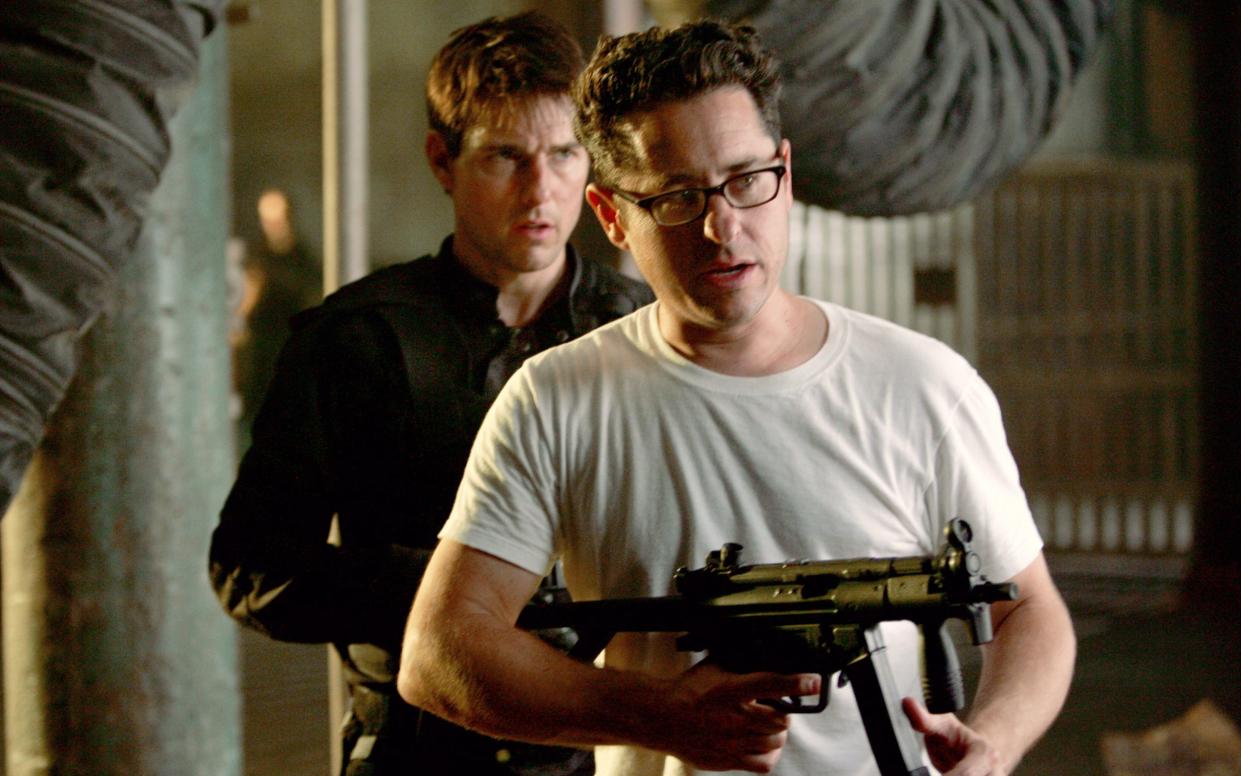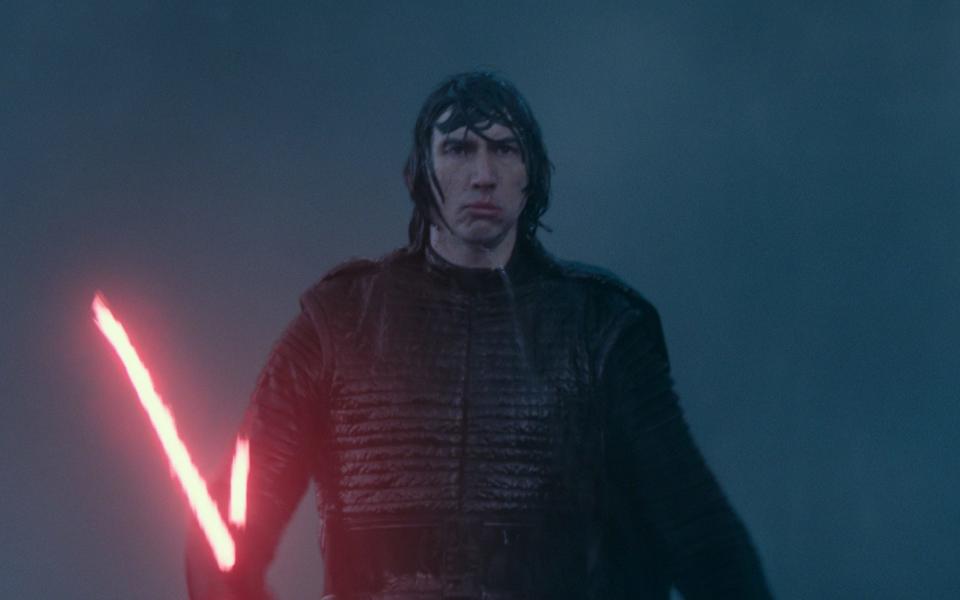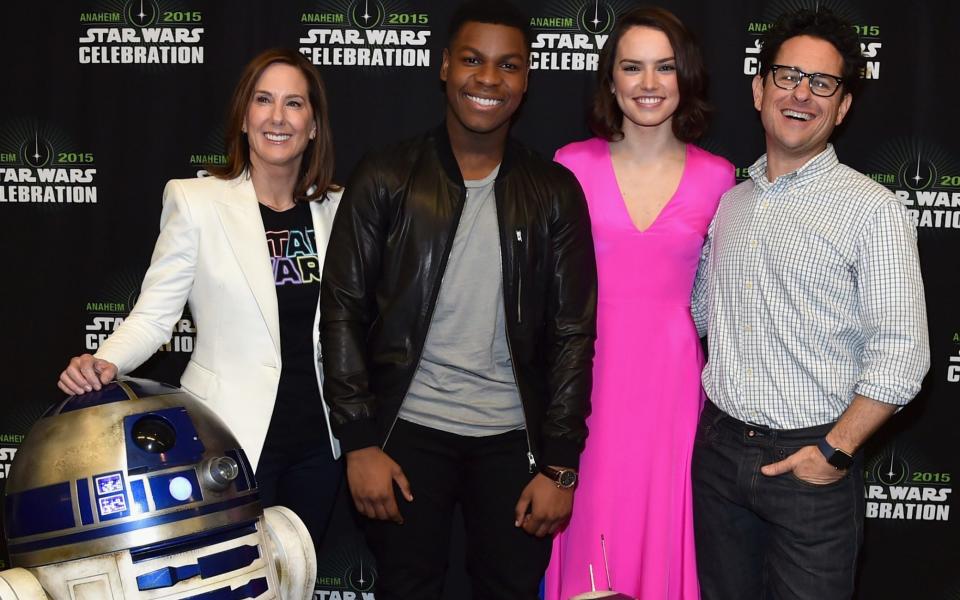From ‘the next Spielberg’ to Star Wars pariah: why JJ Abrams stopped making films

- Oops!Something went wrong.Please try again later.
- Oops!Something went wrong.Please try again later.
- Oops!Something went wrong.Please try again later.
- Oops!Something went wrong.Please try again later.
- Oops!Something went wrong.Please try again later.
- Oops!Something went wrong.Please try again later.
Halfway through JJ Abrams’s 2009 Star Trek movie, Chris Pine’s Captain James T Kirk is exiled to a barren ice planet. Abandoned by friend and foe alike, he must eke out an existence in an empty wasteland. Little could he have suspected it at the time, but a similar destiny awaited Abrams, feted Milky Bar kid lookalike and, at that point, boy wonder of American popcorn cinema. He’s been marooned on his own figurative ice planet since December 2019. Which was when he brought down the curtain on Disney’s lamentable Star Wars “sequels trilogy” with one of the worst films ever made: The Rise of Skywalker.
Rise of Skywalker grossed $1 billion – the minimum bar for any new Star Wars movie – and was the seventh-highest-earning feature globally in 2019. So, on paper, not a disaster. But in terms of the harm inflicted on the reputations of all involved, it was the equivalent to a direct hit from the Death Star.
None of the cast have gone on to bigger or better things – with the possible exception of John Boyega, who starred in Steve McQueen’s excellent Red, White and Blue and has since complained his Star Wars character, Finn, was sidelined due to his race. Disney, for its part, continues to struggle to prove that it is a worthy custodian of Star Wars. It has suffered fresh criticism with the recent announcement it is bringing back Daisy Ridley’s intergalactic girl-boss Rey for a sequel to the sequel trilogy nobody – Ridley’s agents aside – wanted.

However, most of the damage was sustained by Abrams, not so much sent to director’s jail as exiled to a director’s prison planet in Hollywood’s equivalent of the Outer Rim. In 2019, great satisfaction was taken in his apparent downfall. Nothing triggers schadenfreude quite like a wunderkind soaring too high and then burning up on re-entry. That is what happened to Abrams, accused by Star Wars fans of dragging their beloved saga into the gutter.
But now, three and a half years later, Abrams is finally ready to leave his ice cave with two new Star Trek movies. It is much too early to speak of a JJ-naissance. He’s a long way from his glory days when Tom Cruise sought out Abrams to revive Mission: Impossible by directing the excellent Mission Impossible III. Or when Disney executive Kathleen Kennedy begged him to oversee the company’s new Star Wars trilogy.
Nonetheless, there are signs of life from out in the void. Abrams is returning to Star Trek to produce, via his Bad Robot company, a prequel to his 2009 film, directed by Toby Haynes, fresh from his collaboration with Tony Gilroy on the Star Wars series Andor. Plans are also moving forward – albeit at warp speed zero – for a fourth entry in the saga proper. Abrams won’t be directing either – but whenever he is involved in a project, you can spot his touches a mile away. And so his thumbprints will inevitably be all over these new Treks.
For fans of pure escapism, this is good news. Whether it’s his Star Trek films or TV shows Lost, Fringe and Alias, Abrams is a master of pure ejector-seat excitement. His work is fun for the sake of fun – an escape hatch on the drudgery of everyday life, a place where you go to be entertained and just entertained. It’s good to have him back in the captain’s chair.
That is notwithstanding the sour taste that still lingers after Rise of Skywalker. Its atrocious set-pieces included a scene in which horses charge across the surface of a Star Destroyer. Then there were all those cheap fake-outs (Chewbacca is dead! Oh no, he isn’t etc..). And let’s not forget the worst Star Wars dialogue ever, when Oscar Isaac’s Poe Dameron sees Stormtroopers with jet-packs and exclaims, “they fly now?!”.
Nobody would deny the film is a disaster. Even Abrams seemed to suspect he had birthed a turkey when promoting it. “I’ve never been great at endings,” he told the New York Times. “I don’t actually think I’m good at anything, but I know how to begin a story. Ending a story is tough.”
As the backlash built, Abrams was reluctant to defend Skywalker. People who hated it were entitled to their view. It was an opinion toward which he was surprisingly sympathetic. “I would say that they’re right,” he said of the jeerers– though with the caveat that that minority that enjoyed Rise of Skywalker also had a valid viewpoint. “The people who love it more than anything are also right.” Love it, hate it – he didn’t seem bothered.

Rise of Skywalker devastated his standing in Hollywood. The golden boy had lost his shine. In 2022, the unthinkable happened: one of his projects was canned by HBO. Demimonde was to be an ambitious dimension-hopping TV series with echoes of his big hit Fringe. It was set to shoot in Belfast in the same studios where HBO had made Game of Thrones. But the new boss of HBO’s parent company, David Zaslav, had just embarked on a wild campaign of cost-cutting .When Abrams refused to budge on the $200 million budget, it was adieu to Demimonde.
This wasn’t the first Abrams project to come unstuck. In 2016, he’d been due to direct an adaptation of non-fiction bestseller Killers of the Flower Moon – a job later taken up by plucky newcomer Martin Scorsese. Yet, in the context of Rise of Skywalker’s perceived failure, the death of Demimonde was a punch to the jaw.
Now he’s started his comeback. It is a return that includes the intriguing possibility that Abrams may convince Quentin Tarantino to fulfil his ambition of directing a Star Trek film. Tarantino was initially gung-ho, and a script was completed, riffing on the classic original Trek episode, A Piece of the Action, where Kirk and Spock are imprisoned in a society that has modelled itself in Twenties Chicago. However, the plans then fell foul of Tarantino’s vow to make just 10 movies – a pledge that did not allow for a dalliance in sci-fi. But you can never say never in Hollywood. Unless it concerns Abrams and Star Wars, to which he is almost certainly not returning.
Star Trek is a better fit, even if he’s only just back as a producer. For one thing, Trekkers are much less toxic than the “Fandom Menace” Star Wars fanbase, who seem to live to hate every Jedi spin-off (sometimes with good cause).
Secondly, Abrams’s derring-do is perfectly suited to Trek. Though Star Trek is often regarded as Star Wars’s more intellectual older sibling, the original William Shatner-Leonard Nimoy series brimmed with escapist silliness – whether it was Captain Kirk fighting aliens in landfills or Mr Spock strumming his luxuriant Vulcan lyre. Abrams, who was not a fan of Trek as a kid, recognised that this pulp quality is crucial to Star Trek – something missing from recent TV reboots such as Star Trek: Discovery.
Early on, Abrams became renowned for his “mystery box” approach to narrative. In Fringe and, especially, Lost, the plot was kept under lock and key. He would give us fragments. But the big picture was left to the viewers to assemble. He navigated the same course with his first Star Wars film, 2015’s The Force Awakens, where it was hinted Rey’s parents were connected to the story of Luke Skywalker.
Unfortunately, those seeds were crushed underfoot by Rian Johnson’s lamentable follow-up, The Last Jedi. Meanwhile, the mystery box concept has fallen from favour amid a glut of pointlessly-complicated post-Lost shows such as Netflix’s 1899, cancelled weeks after hitting the streamer.
None of that is Abrams’s fault. Mission Impossible III, 2011’s Strange Things-esque Spielberg tribute, Super 8 and even Star Wars: The Force Awakens are all testament to his unique flair for pacy and enigmatic storytelling. At a time when sub-par Marvel movies have hollowed out the multiplex, there is surely space for more of Abrams’s secret sauce. Fingers crossed, these new Star Trek projects are just the beginning, and he soon beams back to the box office in earnest.

